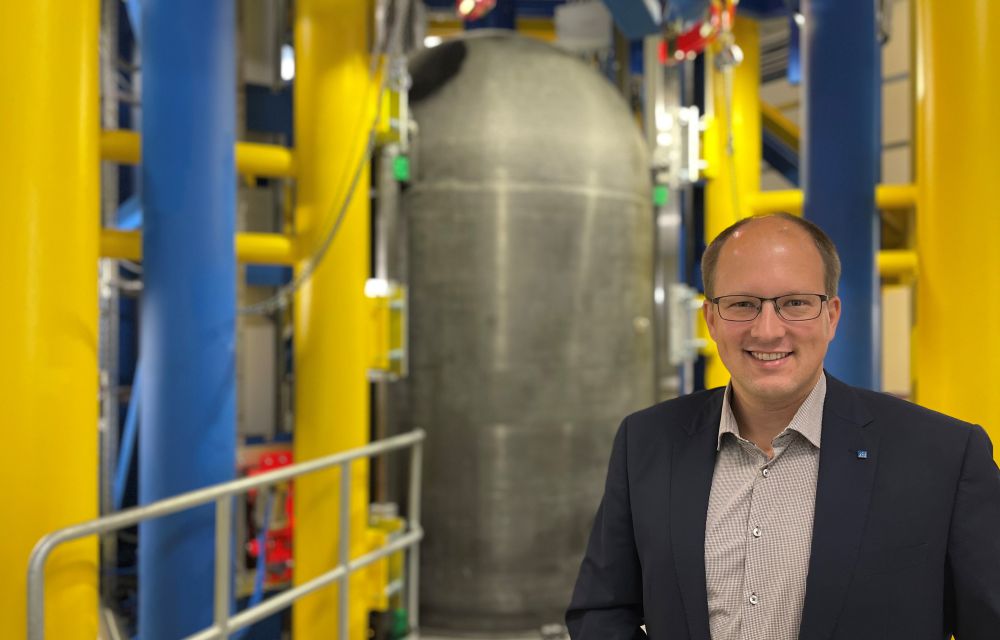How does one actually become a space researcher? After studying mechanical engineering at Leibniz University Hannover, Dr.-Ing. Christoph Lotz initially worked as a research assistant at the Institute of Transport and Automation Technology (ITA) and the QUEST Leibniz Research School. He currently heads the research area “Production in Space”, coordinates cross-faculty internal and external university research projects and is a member of the Cluster of Excellence QuantumFrontiers.
Establishment of the Einstein-Elevator
The close collaboration between the ITA, the Institute of Quantum Optics and the QUEST Leibniz Research School enabled Christoph Lotz to manage a major DFG-funded project – the construction of the Einstein-Elevator. This is an active drop tower for conducting experiments under weightlessness and partial gravity.
In his dissertation entitled “Investigations on factors influencing the quality of experiments under microgravity in the Einstein-Elevator”, which was published in January 2022, he addresses the question of which factors play a decisive role in the quality of the drop tower facility.
Research in the Cluster of Excellence QuantumFrontiers
Within the Cluster of Excellence QuantumFrontiers, whose mission is to expand the knowledge horizons of applied metrology using quantum technologies, Christoph Lotz is responsible for the coordination of projects under microgravity.
In addition, together with Dr. Baptist Piest, he leads the Topical Group “Quantum optics and sensing in microgravity” (QOSMIG), which supports the planning, realization and testing of pioneering future space missions. Connections both among microgravity platforms and among researchers from different disciplines are forced here.
Team leadership of a new research area
In addition to successfully participating in other research projects and managing the Einstein-Elevator, Christoph Lotz heads the “Production in Space” research area within the Institute of Transport and Automation Technology (ITA) at Leibniz University Hannover. This deals with production processes under space conditions, such as those that would be used on the ISS, the moon or Mars.
In addition to basic research in physics and the further development of the Einstein-Elevator, his current research focuses on the investigation and development of various additive manufacturing processes in microgravity and partial gravity, as well as the development of systems suitable for use in space.
Since May of this year, the research area around Christoph Lotz has moved its work location from Garbsen to Hannover at the Hannover Institute of Technology (HITec). The team, which currently consists of 7 members, is thus conducting research close to the Einstein-Elevator and can benefit from synergies from its proximity to physics colleagues. In addition, the space conditions simulated in the Einstein-Elevator are also made available to external scientists and support them in their successful project implementation.
